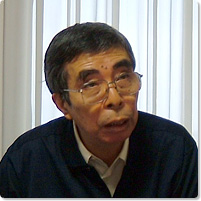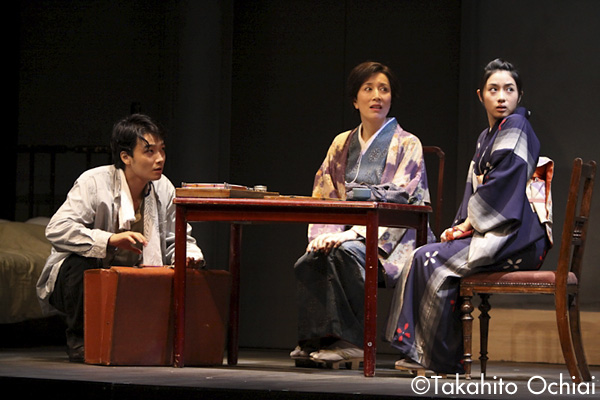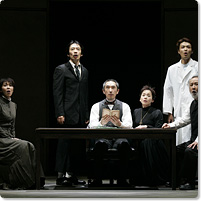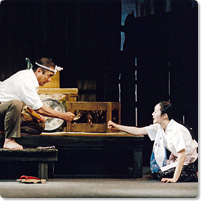Hisashi Inoue

Hisashi Inoue
The writer and playwright Hisashi Inoue was born in Kawanishi-machi, Higashiokitama-gun, Yamagata prefecture in 1934. He graduated from the French course of the Foreign Language Dept. of Sophia University. During his university years he became the Cultural Affairs and Promotions chief of the France-za burlesque and strip theater in the Asakusa district of Tokyo and began writing scripts for the theater’s performances. From 1964 he became one of the scriptwriters for the NHK national broadcasting company’s puppet theater program Hyokkori Hyotanjima . His works won the hearts of many people with their humor and satire based on an unfaltering sense of the contemporary. He made his debut in the theater world with the play Nihonjin no Heso (belly button of the Japanese) that he wrote for the theater company Theatre Echo in 1969. In 1972 he won the Naoki Prize for the novel Tegusari Shinju (Handcuffed Double Suicide), which dealt with the lives of popular writers in Japan’s Edo Period. That same year he won the Kishida Drama Award and the Selected New Artist Award for Dogen no Boken (the adventures of Dogen). He won the Kinokuniya Drama Award and the Yomiuri Literature Award (Drama Division) for his plays Shimijimi Nippon-Nogi Taisho and Kobayashi Issa . In 1984 he founded the Komatsu-za theater as a company to produce and perform his plays. For it he wrote a succession of plays including Zutsu Katakori Higuchi Ichiyo , Kirameku Seiza , Yami ni Saku Hana , Yuki ya Konkon , Ningen Gokaku , Mokuami Opera , Rensagai no Hitobito and Ani Otouto . Throughout his career, Inoue has been a prolific playwright, novelist and essayist. In 1987 he donated his vast collection of books to his hometown of Kawanishi-machi for the creation of a library named the “Writer’s Block Library. His play Chichi to Kuraseba has been translated into English, French, German, Russian, Italian and Chinese, and numerous others of his plays and novels such as Kesho (Makeup) , Yabuhara Kengyo and Bun to Fun have translated and performed to high acclaim overseas. Hisashi Inoue died on April 9, 2010.




